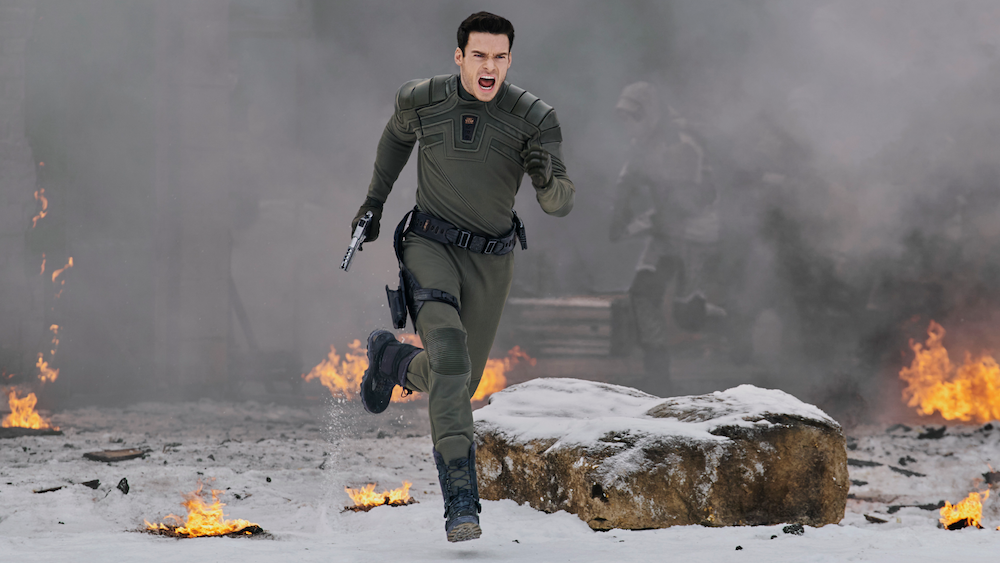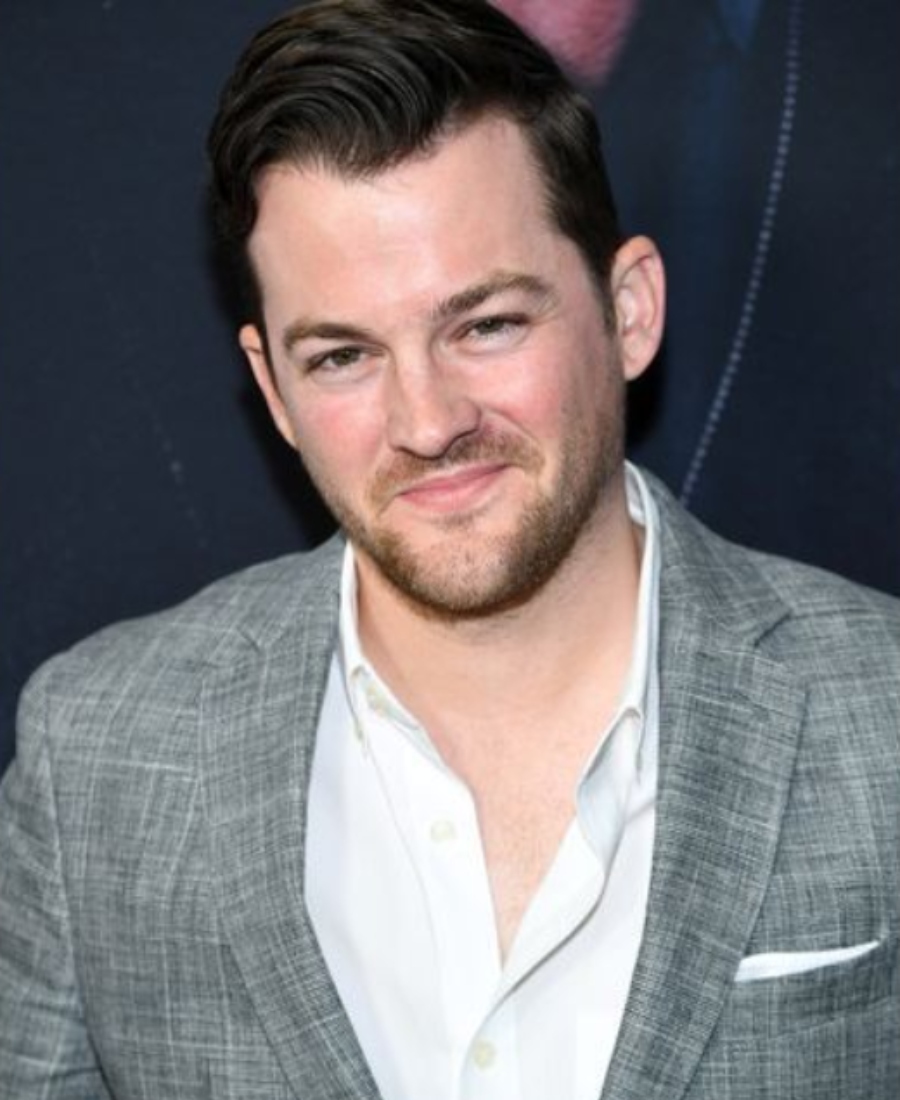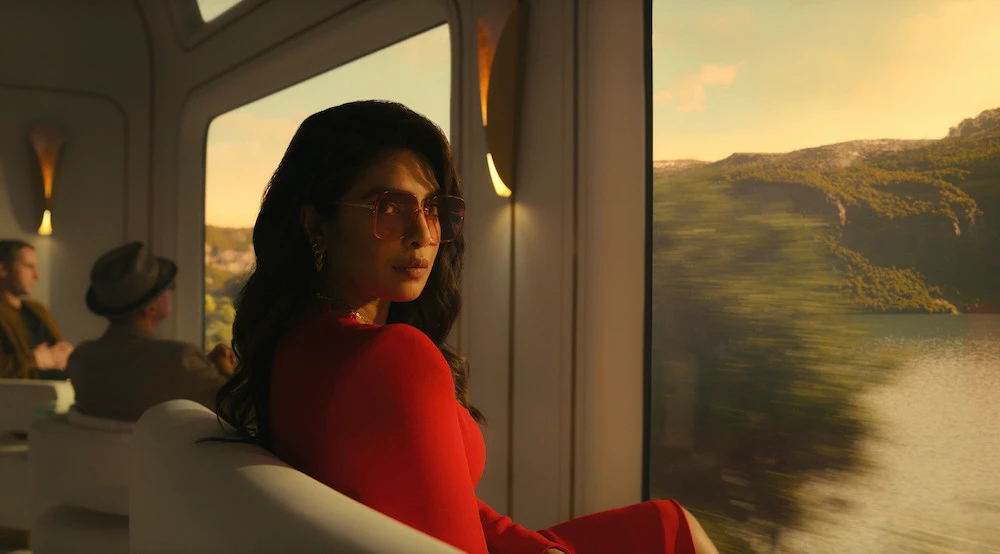
Alex Belcher is most definitely in tune with the Russo Brothers. The Composer first entered their orbit on Captain America: Civil War, via that film’s lead maestro, Henry Jackman, and worked with that trio again on 21 Bridges, Mosul, Extraction, Cherry, and The Gray Man.
After flying solo as a composer on Made in Italy and The Contractor, neither of which involved the Russos or Jackman, Belcher has composed the music (including the theme song) for all six episodes of Amazon Prime Video’s series Citadel.
The action-oriented spy thriller, which debuted last month and is in the middle of its run, boasts big stars (Richard Madden, Priyanka Chopra-Jonas, Stanley Tucci), huge action and stunts, and exotic locales, and it put Belcher to the test.
Below the Line recently caught up with Belcher via Zoom. The composer shared his philosophy about the role of music in a show or movie and addressed whether or not Citadel’s reshoots and delays affected the score.
[Note: This interview has been edited for clarity and length.]

Below the Line: What was the first time you remember music in a movie or a TV show, truly capturing your attention?
Alex Belcher: Truly capturing my attention? I know there are a couple of older films that I watched as a child. Bernard Herrmann’s score for Vertigo. It’s sort of sacrilegious to say, but to my ears, it’s one of the best film scores to ever be written. I don’t know if that was the first one. There may have been some others. I grew up in the 90s, so John Williams’s Jurassic Park. Alan Silvestri’s Forrest Gump was another one that I remember very vividly responding to. Some Jerry Goldsmith scores. I was always a fan of his sexy, thriller, vibes. He did a lot of stuff that I still sort of mimic today with a lot of bar three four, bar two four, bar seven. I’ve actually done a lot of that on Citadel.
BTL: Going back to the earliest days of your career, who opened the door for you?
Belcher: I moved to Los Angeles and I got Hans Zimmer‘s company’s number from some sketchy website. I called him and the person working at the front desk — who would become a dear friend, Christina, at the time she was working there — and I just said, “Hey, my name is Alex. You should hire me.” A week goes by, I get a call to come interview for an internship. Because I had a little bit of a background in technology, I got offered a job to work doing tech for Hans’s company. It wasn’t like he was specifically offering me one, but his people were.
While I was there, I’d actually met Henry Jackman. Henry was maybe finishing up Gulliver’s Travels when I first met him. He offered me a job. I had these two competing jobs, and I took the one with Henry. I worked for him for a couple of years and then started collaborating. We would do additional music, and we’ve done some co-writes together.
BTL: I’ve heard you describe him as your mentor…
Belcher: Yeah, for sure. To be fair to Hans, his team were the first people to give me a bit of a chance, and through that I met Henry. It’s a bit of both, for the two of them to give me my start.
BTL: What’s your general philosophy when it comes to music in a movie or a show?
Belcher: Storytelling. I’m a storyteller. I know plenty of better musicians and composers than myself. The one thing that I might be halfway decent at is storytelling, and doing that with music. I grew up working in theater. I’ve always loved theater, plays, and storytelling in that sense. When I was studying music, I realized, “Oh, I can do both of those with film music.”
For me, my general philosophy is, “What is the story we’re trying to tell?” It’s really collaborative with the filmmakers and the producers going, “What do we want the audience to feel? What do we not want them to feel? How do we want to misdirect? How can music help tell this story?” That’s where I always start, and then go from, “Okay, well now, what genre are we in? What instrumentation can we use?” That’s all secondary to, “What’s the story?”

BTL: Citadel is your latest project with the Russos. How did you initially connect with them?
Belcher: It was through working with Henry on their Captain America movies. We did a couple of films as co-writes. We did 21 Bridges. We did a film score that I produced of Henry’s, called Mosul — which may have been the first one after the Captain America movies. I produced that score, then we did 21 Bridges and Extraction. That’s how I got that connection. Henry was very generous in putting me out front and sitting me in the room with them. Over the course of all the early films, I got a chance to get to know Joe and Anthony, and our relationship began there.
BTL: How quickly did you jibe with them?
Belcher: You have to ask them. For me, right away. I was like, “These guys are awesome.” They’re like me in a lot of ways, minus the enormous amount of success and talent. They’re kids from the Midwest who love film. I’m from Kentucky, they’re from Ohio. We’re all film nerds from the Midwest. There was something there that stripped away some of what would normally be Hollywood politics. Their only real concern is storytelling, good ideas, and things like that. They’re eager to listen to anybody in the room. They’ve got no ego, which made it fun for me when I was young, working on those projects, to interject and have my opinions heard by these great filmmakers.
BTL: You said “they” several times. Are they two halves of one brain when you work with them, or are they two separate entities with two separate opinions?
Belcher: Well, they’re brothers. I have two brothers, and it’s that. The best way I can describe it is they are two parts of the same brain, but at the same time, they’re brothers and anyone who has a sibling can relate to that sentiment.
In general, what excited you about Citadel?
Belcher: We were wrapping up Extraction, and the dates are going to get blurry, because that was right around the time COVID happened. It was like a New Year blur. It was sometime around then, and Joe started talking to me. “We’ve got this thing.” He started describing it to me, and I’m like, “Wow, this is going to be a massive film. That sounds really cool.” I said as much and he said, “Oh, no, it’s a series.” I was like, “What? How is that, given everything you’ve just described is what you would see in the biggest summer blockbuster film? How is that possibly going to be a series?” That right away was intriguing.
I read it, and I was like, “Okay, this is awesome. This is going to be a lot of fun,” because of the sheer scale. I don’t even know if that’s the right word to use, but it takes place all over the world. It’s all these different things, all these characters, and it’s this very cool, massive thing. I was immediately excited because I saw the potential for what music could do to help be a through-line through all of these places; all this action, drama, comedy, and all these fun things.
BTL: Did you create a theme for, say, Mason, and carry that across all six episodes?
Belcher: Yes and no. Joe sent me the script. We read it and we talked about it, and then he’s like, “Start writing music now.” We did, and this was early on, before they had shot anything. He was hoping music could help set the tone early on, and so I started writing two or three years ago. They went away, shot, and it came back. They put a lot of that in the edits and once they had the show all together and I looked at it, I was like, “Okay, that theme works well for here. I thought that would be that character’s theme, but no, that belongs over here.”
Some of that thematic writing was already done by the time the cut came to me, which is fantastic, because I’ve done that two years ago. Then it was like, “What part of the story do we still need to tell with music? What characters are playing a different role on screen, than they maybe were on the page?”
BTL: I could be wrong, but please indulge me. There’s a scene 13 minutes into Episode 1 in which we see Mason floating in the water, and then cut to a light in the hospital as the camera takes us to him being tied down in bed. I swear that the second it cuts from him in the water to the light I hear a note or two of Bill Conti’s For Your Eyes Only score, which accompanied the water-themed title sequence. Am I making that up?
Belcher: It wasn’t a conscious thing. I don’t even remember that score. I don’t know if I’ve ever seen it, but to answer a little bit more generically than probably you want me to, there was a sense in this of… it’s an espionage show. We’ve seen those. James Bond is always going to be hovering over you somewhere as you’re making one of those. It’s a drama. It’s a sexy, banter-y show. We had to tip our caps to all of those, so there are definitely a lot of references and things that were used as influences. I don’t remember that one specifically.
BTL: It’s out there that Citadel cost a lot of money, took a long time to film, and required reshoots. How do reshoots change the game for a composer, especially if they were extensive?
Belcher: Reshoots aren’t uncommon. In almost all the films that I’ve done, there have been some degree of reshoots. From my perspective, it didn’t change much. A lot has been said about the budget. Priyanka said something along the lines of, “Yeah, well, I got pay equity on this one.” Which I think is amazing. The other thing I would add to that conversation is that Amazon and AGBO, from the get-go, said, “This score has to match the scale of this production. It can’t be generic TV music that you bang out quickly.” I was like, “Alright, well, we’re going to need an orchestra” and Joe said, “Yep, 100 percent.” I said, “It’s going to be expensive.” It was like, “Okay. It’s fine.”
We recorded a symphony orchestra for six episodes in London. The budget — it may reflect this and that — but it reflects to me what happens when you do a show properly, when you take the time, when you make a show right, especially in the actors’ case when you pay them what they’re worth, and what they deserve. That’s what the budget reflects to me. Our musicians got paid what we wanted them to get paid. We didn’t get any pushback from AGBO, the studios, or anyone. We said, “Okay, you want to make this big show? This is what it’s going to take to do it properly.” From the very top, all the way down, it was like, “Let’s do it.”
Citadel is now streaming on Amazon Prime Video.





